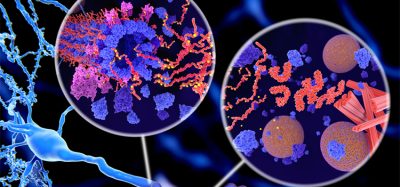New drug may boost vaccine responses in older adults
Posted: 16 December 2020 | Victoria Rees (Drug Target Review) | No comments yet
Researchers have found that spermidine can ramp up autophagy and boost T-cell function, potentially increasing the protective effects of vaccines in older adults.


A drug that boosts the removal of cellular debris in immune cells may increase the protective effects of vaccines in older adults, a study new study has shown. The research was conducted at the University of Oxford, UK.
According to the researchers, the results may lead to new approaches that protect older individuals from viruses such as the one causing the current COVID-19 pandemic and influenza.
“Older adults are at high risk of being severely affected by infectious diseases, but unfortunately most vaccines in this age group are less efficient than in younger adults,” explained lead author Ghada Alsaleh, a postdoctoral researcher.
Previously, Alsaleh and colleagues showed that in older mice immune cells may become less efficient at removing cellular debris, a process called autophagy, leading to a poorer immune response in the animals. In the current study, they looked at samples from young and older people participating in clinical trials for vaccines against the respiratory syncytial virus and the hepatitis C virus to see if the same event happens in human immune cells called T cells. They found that autophagy increases in T cells from younger people after receiving vaccines, but this response is blunted in older people.
When they examined T cells from the older individuals in the laboratory, the team found that these cells have less of a natural compound called spermidine. Spermidine ramps up autophagy and boosts T-cell function. Supplementing these older immune cells with spermidine in the laboratory restored autophagy to the same levels seen in T cells from younger people.
“Our work suggests that boosting autophagy during vaccination may help make vaccines more effective for older people,” Alsaleh said.
“Our findings will inform vaccine trials in which autophagy-boosting agents, such as spermidine, are given in a controlled environment to older participants,” concluded senior author Professor Anna Katharina Simon. “It will be interesting to see whether these agents can enhance vaccination efficiency and help protect older people from viral infections.”
The study was published in eLife.
Related topics
Drug Development, Drug Targets, Research & Development, Target Molecule, Targets, Vaccine
Related conditions
Covid-19, Hepatitis C, Influenza
Related organisations
Oxford University
Related people
Ghada Alsaleh, Professor Anna Katharina Simon








